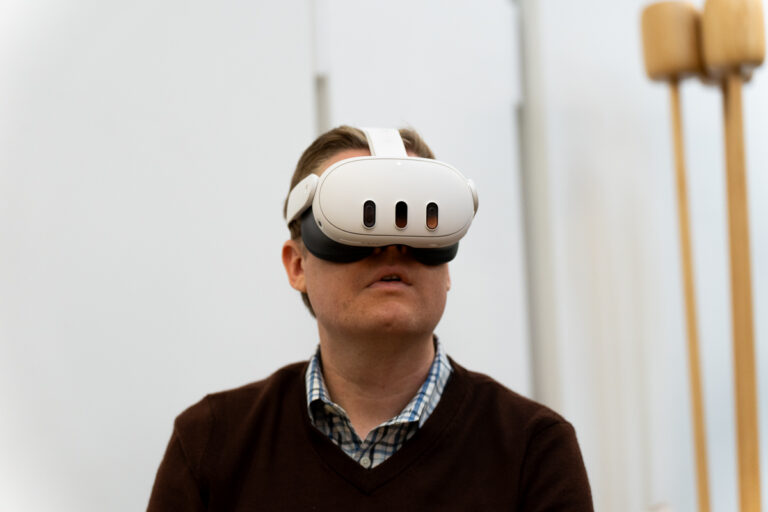Meta plans to integrate more generative AI technology into games, particularly virtual reality, augmented reality and mixed reality games, as the company seeks to reinvigorate its flagging metaverse strategy.
According to a job posting, Meta is looking to research and prototype “new customer experiences” with new types of gameplay driven by generative AI, such as games that “change every time you play them” and follow “non-deterministic” paths. In parallel, the company aims to create — or partner with third-party creators and vendors to use — generative AI-powered tools that could “improve the workflow and time to market” of games.
The focus will be on Horizon, Meta’s family of metaverse games, apps and creation resources. But it could expand to games and experiences on “non-Meta” platforms like smartphones and PCs.
“This is a nascent field, but it has the potential to create new experiences that don’t even exist today,” the job posting reads. “Innovation in this area could have a huge impact on the ecosystem, as it is expected to increase efficiency and enable the creation of much more content.”
Meta did not respond to a request for comment.
The new efforts come as a successful product remains elusive for Meta’s Reality Labs, the division responsible for the company’s various metaverse projects, including its Meta Quest headset. While Meta has sold tens of millions of Quest units, it has struggled to attract users to its Horizon mixed-reality platform — and recoup billions of dollars in operating losses.
Meta recently evolved its metaverse platform strategy, allowing third-party headset makers to license some of the Quest’s software features, like hand and body tracking. At the same time, Meta has been ramping up its investment in metaverse gaming projects, apparently due to Meta CEO Mark Zuckerberg’s newfound personal interest in developing games for Quest headsets.
Meta has already expressed interest in metaverse experiences based on generative AI.
In 2022, Zuckerberg showed off a prototype, Builder Bot, that lets users build parts of virtual worlds by describing them with prompts like “Let’s go to the beach.” And last year, in a blog post, Andrew Bosworth, Meta’s CTO and head of Reality Labs, described generative AI tools that could help “level the playing field” in metaverse content creation.
“Just like Instagram helped anyone become a creator, [these generative AI tools] “This will not only strengthen the power of individual creators,” he wrote.[T]“They will also act as a force multiplier for developers, giving small teams the power of big studios and accelerating innovation at every level.”
Generative AI has begun to infiltrate video game development, with companies like Inworld and Disney-backed Artificial Agency applying the technology to create more dynamic dialogue and game narratives. A number of platforms now offer tools to generate art assets and character voices via AI, much to the chagrin of some game makers who fear for their livelihoods.
Meta announced earlier this year that it plans to spend billions on generative AI and formed a new top team focused on generative AI products like AI characters and ads. In April, Zuckerberg warned that it would take the company “years” to make money from generative AI, suggesting that the investments aren’t going to be a game-changer for Reality Labs anytime soon.


